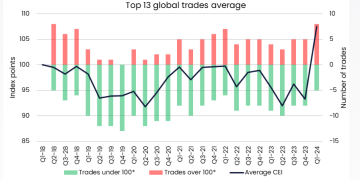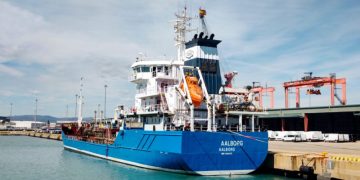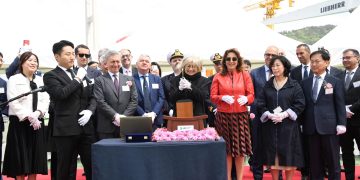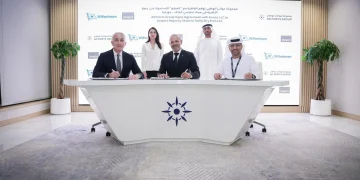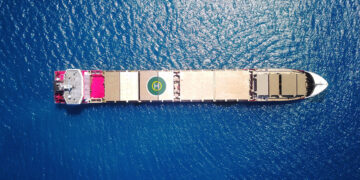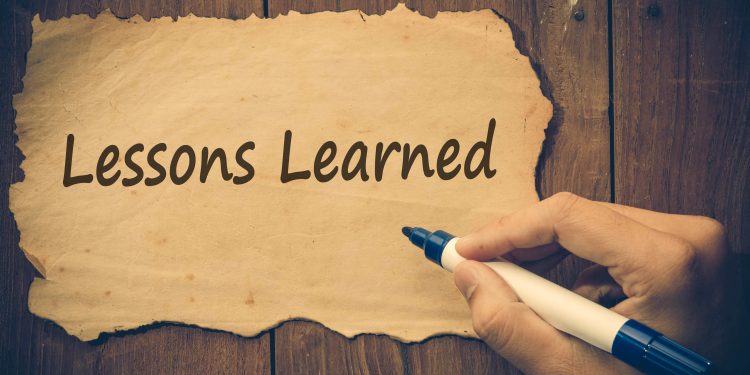As the Nautical Institute reports, three tugs were assigned to assist an ultra-large container ship to its berth at a terminal. Tug A, which was allocated the role of stern tug, was a five-year old vessel that had been very recently delivered to the harbour fleet.
The incident
A delivery crew from the previous operator were working with the vessel’s future crew to provide familiarisation following the handover.
Once underway for the berthing operation, but before meeting the vessel to be towed, the tug’s delivery Master handed over the helm to the tug operator’s Master. Under the supervision of the delivery Master, the tug operator’s Master began manoeuvring evolutions to gain an appreciation of the tug’s capabilities. This included mooring alongside the berth on both port and starboard sides.
With these manoeuvres complete, the tug headed to the inbound container ship. At 11:46, the tug met the container vessel and was manoeuvred into position to assume its role as stern tug. The tug’s starboard forward towline was passed across to the container ship’s aft mooring deck. With its towline slack and its winch brake applied at maximum holding capacity, the tug held station astern of the container ship as it proceeded towards the berth.
At about 12:25, the container vessel entered the turning basin adjacent to its berth at a SOG of 3.7 kts. Tug B was at the container ship’s bow and tug C was on its port quarter. As the ship began to turn to port, the pilot requested tug A to provide 50% stern thrust to slow the ship. Shortly afterwards, the pilot requested that tug A increase the stern thrust to 100%. As the load on the towline increased, tug A’s winch brake slipped and a few metres of the towline were released. With full astern power being maintained, the line quickly became taut and the winch brake slipped a second time, releasing another several metres of towline.
After the winch had slipped for the second time, the towline pennant parted close to the container vessel’s deck and snapped back towards tug A. Part of the line struck the starboard forward wheelhouse window, shattering it completely. It also struck the centre forward window, fracturing the inner pane.
Five crew in the wheelhouse of tug A were struck by flying glass fragments and suffered multiple minor facial, arm and upper body lacerations, including both Masters. All of the crew were wearing some form of eyewear, which prevented any eye injuries. The rest of the wheelhouse was riddled with glass fragments. Two of the inner panes of the aft-facing windows were also cracked but did not break.
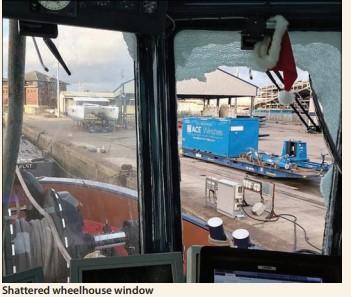
The mate from the delivery crew took control of the tug while the delivery Master went below to clean blood from his face. When the delivery Master returned to the wheelhouse, he resumed control, and shortly afterwards agreed with the container vessel’s pilot that tug A would swap places with tug C. After repositioning the tugs, the container vessel safely berthed and the tugs were released.
All five injured crew were taken to a shore hospital to have fragments of glass removed from their faces and arms.
The official investigation found, among other things, that:
- The towline pennant was not fit for purpose due to reduced residual strength from the shock loading and wear sustained under its previous ownership. Without a detailed inspection by the manufacturer or a load test, it would have been impossible to determine the extent of the damage to the load-bearing core of the pennant and the consequent reduction in strength.
- The starboard winch brake slipped at only about half its intended holding capacity, inducing a high shock load on the towline and pennant. This malfunction was due to less than adequate maintenance.
- The tug’s ‘toughened’ glass wheelhouse windows were unable to withstand the high energy impact load of a towline snapping back. There is currently no suitable glass standard for tug wheelhouse windows that provides a measurable level of crew safety against the hazard of a recoiling towline.
- More severe injuries to the crew in the wheelhouse were only prevented because they were wearing glasses or sunglasses.
Lessons learned
- Tugs and their associated equipment are constantly dealing with high loads which in turn produce high potential energy. Impeccable maintenance and testing of equipment should be undertaken to ensure risks are as low as reasonably practicable.
- ‘Toughened’ glass windows for tug wheelhouses present higher risks for injury to crew than glass that is both toughened and laminated. Laminated safety glass has been a standard for automobile front windows for many decades.





